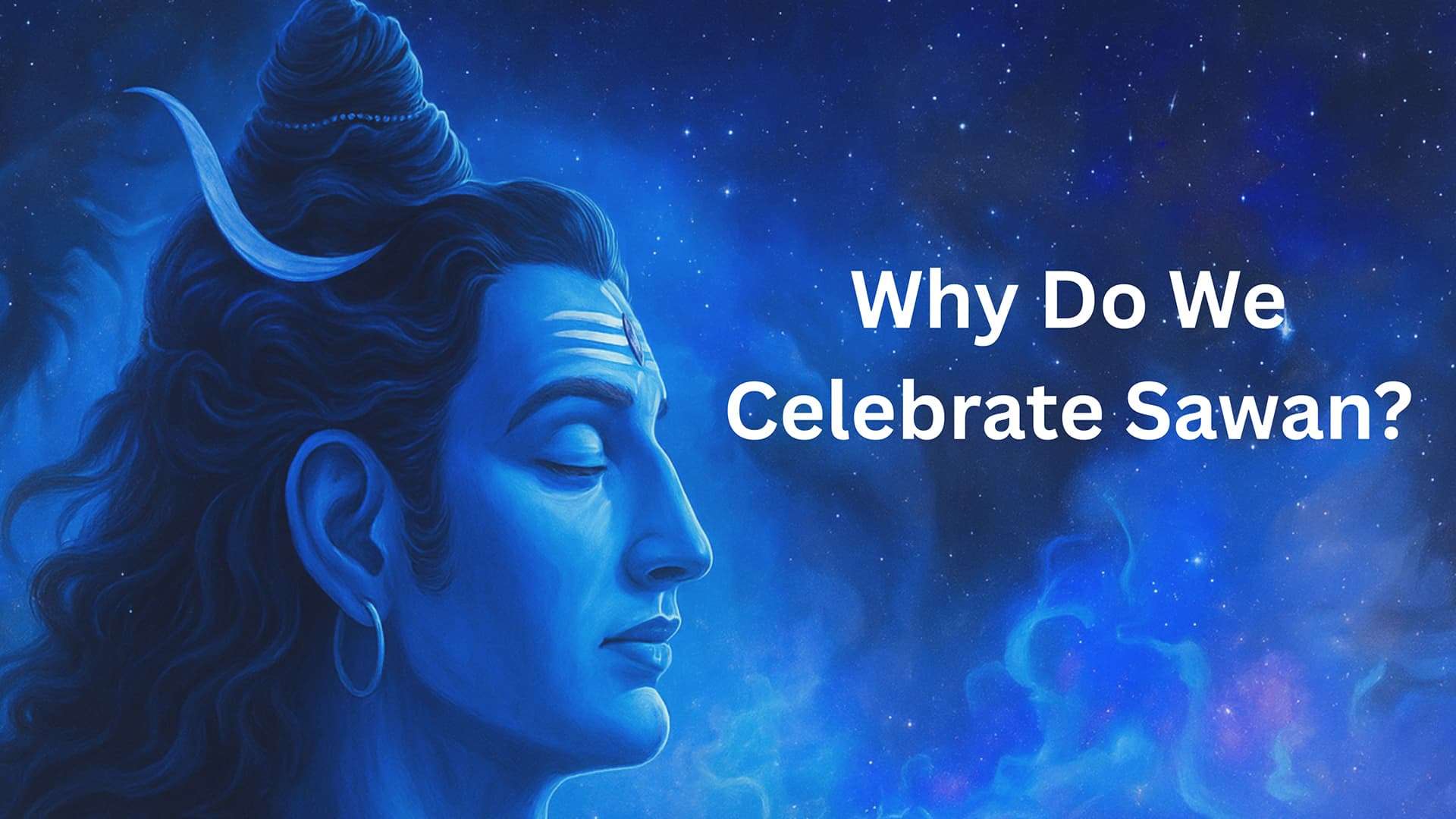Namami Shamishan Nirvan Roopam: Meaning & Deep Significance
In our rich Indian culture, mantras hold great power. They are not just words; they carry deep feelings, energies, and meanings that help us connect with the divine. One such sacred mantra is:

“Namami Shamishan Nirvan Roopam“
This line is a part of a longer prayer, often recited in devotion to Lord Shiva. Let’s understand what this beautiful mantra means and why it holds such importance.
Breaking Down the Mantra
Let us begin by going through the meaning of each word in the mantra:
- Namami: I show my respect by bowing to the God of Gods, Lord Shiva
- Shamishan: He, who rules the universe and is the god of both design and destruction of the universe
- Nirvan Roopam: The one who is beyond everything, the form of liberation (moksha), free from all worldly attachments
So, the full line means:
“I surrender to Lord Shiva, the epitome of peace, who guides us to emancipation and truth.”
This mantra is not just about showing respect. It is about recognizing the divine nature of Lord Shiva, someone who is calm, powerful, and free from all the bonds of the material world. When we say this mantra with love and honesty, we are asking Shiva to bless us with peace and to help us rise above our daily struggles.
Let’s understand this better.
Shiva: The Lord of Silence and Stillness
In this mantra, Shiva is called “Shamishan”, the Lord who brings peace. In life, we all encounter problems, stress, pain, anger, and confusion. This mantra reminds us that when everything feels too much, we can turn to Shiva, who represents calmness and inner silence.
He is not just a god who destroys; He removes everything unnecessary, ego, fear, hatred, and helps us see the truth.
Nirvan Roopam: The Form of Liberation
The word “Nirvana” is profound. It means total freedom, freedom from pain, from desires, from the cycle of birth and death. Shiva is the one who shows us how to live simply, how to let go of what we don’t need, and how to find peace in ourselves.
By calling Him “Nirvan Roopam”, we accept that He is the very image of that freedom. When we connect with Shiva, we also start walking on the path of peace and self-realization.
Namami Shamishan: A Mantra for Inner Peace
This mantra is not just something to chant in a temple. You can say it at home, when you are feeling lost, tired, or need a quiet moment. Just closing your eyes and repeating this line slowly can bring a deep sense of calmness.
It’s like telling your soul: “Don’t worry. Shiva is here. Everything will be okay.”
How and When to Chant Namami Shamishan
There’s no fixed rule for this mantra. But here are a few suggestions:
- Morning: Start your day with calmness.
- Before Sleeping: To relax your mind and let go of the day’s worries.
- During Meditation: Helps in focusing and going deeper.
- Anytime you feel stressed or sad: This mantra acts like a gentle hug for your soul.
There are no rules in bhakti, especially when your intentions are pure. You can recite this mantra however you wish to, either gently out loud or silently in your heart. What matters most is your feeling, your bhakti (devotion).
A Bridge Between You and the Divine
“Namami Shamishan Nirvan Roopam” is so much more and deeper than just words. It’s like a bridge. A bridge between your world and Shiva’s world, between chaos and peace, between fear and faith.
Every time you say this mantra, you are not just praying. You are reminding yourself that peace, strength, and freedom already live inside you because Shiva lives inside you.
In today’s fast life, we all need something to hold onto, something that keeps us grounded, calm, and connected. This mantra is that anchor. Simple yet powerful. Soft yet strong.
So next time life feels heavy, close your eyes, take a deep breath, and slowly say:
“Namami Shamishan Nirvan Roopam.”
“I bow to the Lord of peace, the one who is the very form of freedom.”
You’ll feel lighter. You’ll feel heard. You’ll feel at home.
Here is the complete and divine mantra from the Rudrashtakam, written by Tulsidas:
नमामीशमीशान निर्वाणरूपं, विभुं व्यापकं ब्रह्मवेदस्वरूपम् ।
निजं निर्गुणं निर्विकल्पं निरीहं, चिदाकाशमाकाशवासं भजेहम् ॥
निराकारमोङ्करमूलं तुरीयं, गिराज्ञानगोतीतमीशं गिरीशम् ।
करालं महाकालकालं कृपालं, गुणागारसंसारपारं नतोहम् ॥
तुषाराद्रिसंकाशगौरं गभिरं, मनोभूतकोटिप्रभाश्री शरीरम् ।
स्फुरन्मौलिकल्लोलिनी चारुगङ्गा, लसद्भालबालेन्दु कण्ठे भुजङ्गा ॥
चलत्कुण्डलं भ्रूसुनेत्रं विशालं, प्रसन्नाननं नीलकण्ठं दयालम् ।
मृगाधीशचर्माम्बरं मुण्डमालं, प्रियं शङ्करं सर्वनाथं भजामि ॥
प्रचण्डं प्रकृष्टं प्रगल्भं परेशं, अखण्डं अजं भानुकोटिप्रकाशं ।
त्र्यःशूलनिर्मूलनं शूलपाणिं, भजेहं भवानीपतिं भावगम्यम् ॥
कलातीतकल्याण कल्पान्तकारी, सदा सज्जनानन्ददाता पुरारी ।
चिदानन्दसंदोह मोहापहारी, प्रसीद प्रसीद प्रभो मन्मथारी ॥शिव ध्यान
न यावद् उमानाथपादारविन्दं, भजन्तीह लोके परे वा नराणाम् ।
न तावत्सुखं शान्ति सन्तापनाशं, प्रसीद प्रभो सर्वभूताधिवासं ॥
न जानामि योगं जपं नैव पूजां, नतोहं सदा सर्वदा शम्भुतुभ्यम् ।
जराजन्मदुःखौघ तातप्यमानं, प्रभो पाहि आपन्नमामीश शंभो ॥
रूद्राष्टकं इदं प्रोक्तं विप्रेण हर्षोतये
ये पठन्ति नरा भक्तयां तेषां शंभो प्रसीदति ॥
।। इति श्रीगोस्वामितुलसीदासकृतं श्रीरुद्राष्टकं सम्पूर्णम् ॥


